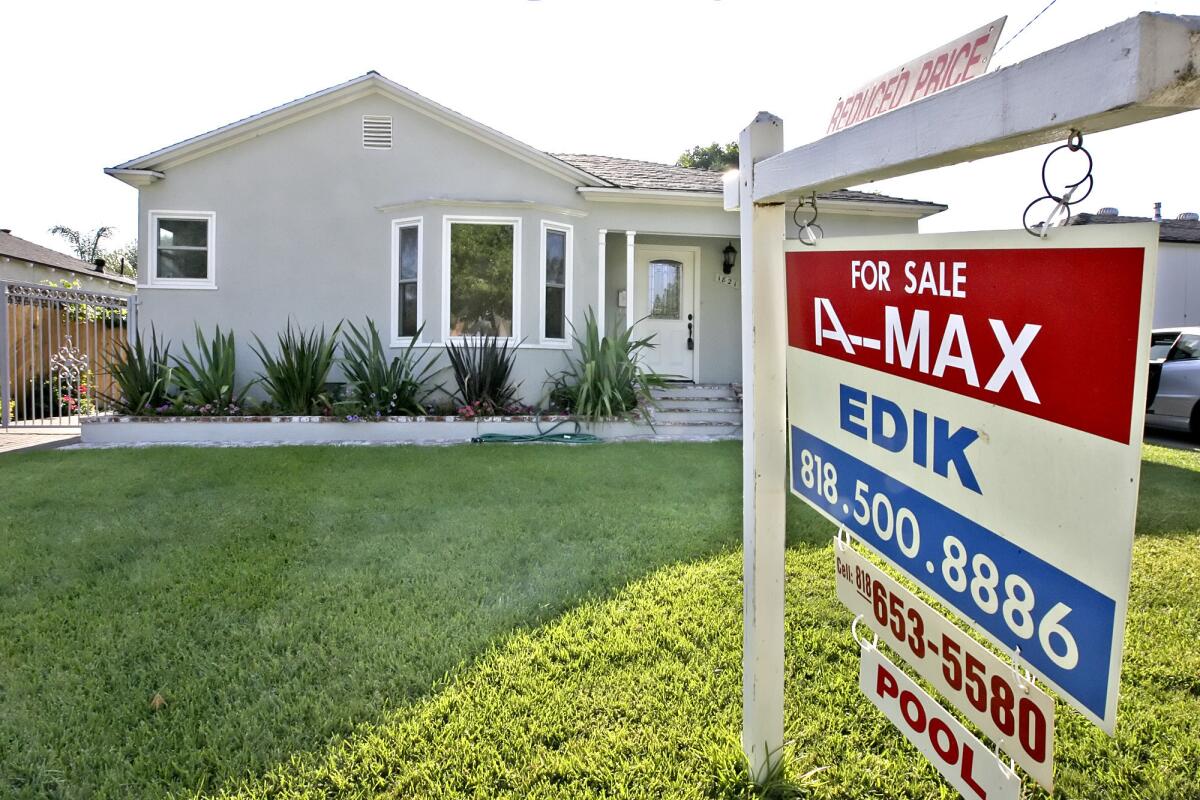Rent and home prices in Burbank are higher than residents can afford, city official says

A home on the 1800 block of North Evergreen Street in Burbank is available for sale in this file photo taken on July 25, 2008.
Recognizing the shortage of affordable housing in the city, members of the Burbank City Council started a conversation this week on how they can fix the shortfall.
Maribel Leyland, who is in charge of the Section 8 program for the city, said during a meeting on Tuesday that the median price of a home was far higher than what the average Burbank resident can afford with what they earn.
The median household income in Burbank is estimated to be about $66,440 annually. However, the median price of a house in Burbank is about $725,000, which is up 6.7% from last year, Leyland said. Comparatively, the median income for someone who works in the city is about $80,000 a year.
Join the conversation on Facebook >>
It’s not any better on the rental front. The median rent for a one-bedroom apartment in the city ranges between $1,600 and $2,000 a month, while the median lease for a two-bedroom unit is between $1,850 and $2,500, Leyland said.
Also not helping is the amount of housing available to both those who live or work in Burbank. There is currently only a 3% vacancy rate for housing, in general, in the city, Leyland said.
“When comparing housing costs and wages of our current residents and workforce, our community does not have housing to accommodate the large number of highly paid workers, let alone affordable housing options for lower- and moderate-income households,” she said.
Leyland said there are more than 44,000 housing units in Burbank. Data show that “almost 10,000 households pay more than 50% of their gross income on housing costs,” Leyland said. “That is one in every four households.”
She suggested several goals and options for council members to consider when trying to address the city’s housing shortage, including more single-family homes or apartments, requiring a certain amount of low-income housing in housing projects and, in more serious cases, using eminent domain to acquire land for more housing.
Councilman David Gordon suggested looking into special land rezoning for high-density residential housing, specifically smaller single-family homes and affordable multifamily apartments where a certain number of units would be designated for low-income residents.
Mayor Jess Talamantes suggested forming a blue-ribbon committee, gathering the various groups involved in housing — developers, landlords and residents — to figure out ways to address the housing issue.
City Manager Ron Davis suggested holding a few more study sessions regarding affordable housing before deciding to move forward with any decisions.
--
Anthony Clark Carpio, anthonyclark.carpio@latimes.com
Twitter: @acocarpio
